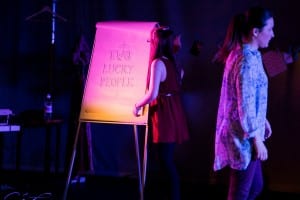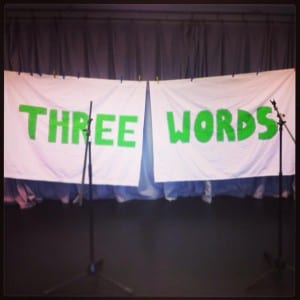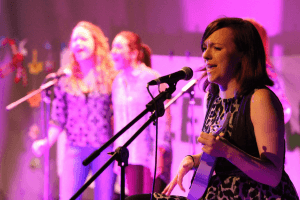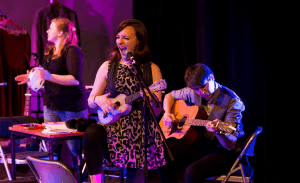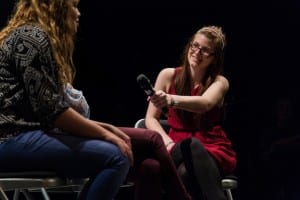“If you died, you’d forget me. And I want to be remembered” (Brief Encounter, 1945)
No Added Sugar has had its 60 minutes on stage. Overwhelmed by positive feedback, we have all hit the post-show blues very hard. We immediately knew that this cannot be the end for us, we cannot be forgotten. There is still obvious ways to develop the scenes – we can cut and change certain bits to make a good show something brilliant. Nothing is ever perfect, which only gives us the urge to keep trying to make ‘Three Words’ better and better
There is one particular scene that I want to reflect on. I have mentioned it, rather ambiguously, in a previous post ‘Gestes de la Romance’. The plan entailed a grand romantic gesture for a member of the audience. It began with a simple gift of chocolates and flowers to an audience member, and ended with me singing Aerosmith’s ‘I don’t Want to Miss a Thing’ under a moving spotlight towards him. It seemed to go very well and was gracefully taken by our audience member. Wanting our first performance to go as best as it could, we selected the person that would receive the gesture previous to the show, and made the necessary steps to make it happen. Therefore my biggest intrigue for when we perform ‘Three Words’ again is how this scene would go when a person is randomly selected. In addition, do we need to make the romantic gesture different, bigger and better each time? It is the type of aspect that would be talked about after a performance, and may not be surprising enough for new audiences if we repeat it. The energy received from the audience really depended on the shock and embarrassment factor. This is all food for thought and I look forward to developing this further.
For now, in the words of Michael Pinchbeck, we have “[Ended] the show with a dot dot dot, not a full stop” (2010)
BassClef707 (2007) Brief Encounter (final scene). [online video] Available from https://www.youtube.com/watch?v=hubyFqSUaGA [Accessed 1 June 2014].
Pinchbeck, M. (2010) What is The End? [online] Nottingham: Making The End. Available from: http://makingtheend.wordpress.com/page/6/ [Accessed 1 June 2014].
